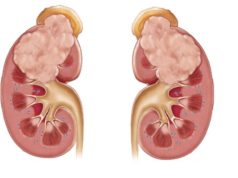
Extensive research has shown that intermittent compression and rubber tourniquets help to dilate superficial veins after fistula placement. The Fist Assist device is an external, medical wearable that can apply intermittent pressure on a specific arm vein to help dilate the vein after fistula placement in a simple non-traumatic way, writes Tej M Singh, Los Altos Hills, USA.
Unfortunately, many renal failure patients progress to end stage renal disease, requiring dialysis. Dialysis options include central catheters, peritoneal dialysis or haemodialysis via fistulae or grafts placed in the arms. Autogenous fistulae are preferred, but development and maturation of these fistulae is a slow process that may lead to chronic catheter placement and extra costs to do interventions to help mature the fistulae. Many patients are instructed to do arm and hand exercises. Unfortunately, many of these exercises are never implemented or successful.
It is hard to predict which veins will enlarge to the appropriate size for dialysis. Unfortunately, many arm veins fail to dilate and enlarge. Some patients are told that their veins are too small, or the fistula does not have appropriate flow to dilate. This results in more inconvenience, more procedures, frequent readmissions, delayed care and increased costs in caring for renal failure.
Extensive research has shown that intermittent compression and rubber tourniquets help dilate superficial veins after fistula placement via mechanisms such as increases in wall tensile stress or nitric oxide release. Recently, a novel noninvasive device called the Fist Assist was developed and created to help study the role of pneumatic compression on fistula dilation. The first feasibility study of the device was done at MS Ramaiah Medical Center in Bangalore, India under the guidance of Sanjay Desai, chief of Vascular Surgery.
One week after arteriovenous fistula creation, Fist Assist was applied 15cm proximal to the fistula in order to apply cyclic compression (50mmHg).Twelve patients with an arteriovenous fistula were enrolled in an institutional review board-approved study to test vein maturation at baseline and with Fist Assist. The device was applied during dialysis three times per week in seven patients for a maximum of 90 days postoperatively. The five patients who were controls did not have any application of Fist Assist. Vein size was measured and recorded at zero, 30 and 90 days by duplex measurement. Clinical results (percentage increase) were recorded and tested for significance.
In the study, no patients experienced thrombosis or adverse effects. Patient compliance and satisfaction was high. No significant, immediate early vein maturation was seen after 30 days in either group. After three months, the mean percentage increase in vein diameter in the Fist Assist treatment group (159.5%) was significantly larger (p=0.05) than controls (76.7%) in the first 5mm segment of the fistula. Comparing three-month average per cent increase: the mean for the treatment group (123.2%) seems to be statistically greater than the control group (66.2%; p=0.03). All fistulae treated with Fist Assist are still functional with no reported thrombosis or extravasations.
Early application of an intermittent pneumatic compression device may assist in arteriovenous fistula maturation and success. Novel, noninvasive devices like Fist Assist may have clinical utility to create functional fistulae development and decrease costs as they may assist in maturation.
There is a need to provide improved vein dilation methods and devices to sufficiently and/or effectively dilate a vein for haemodialysis, help mature fistulae, and help insure that placed fistulae reach their optimal size without extra delay and extra procedures.
The Fist Assist device is an external, medical wearable that can apply intermittent pressure on a specific arm vein to help dilate the vein after fistula placement in a simple non-traumatic way to ensure vein enlargement and dilation. Larger studies continue to test the device in patients with fistulae.
Tej Singh is the president and CEO, Fist Assist Devices, Los Altos Hills, USA











